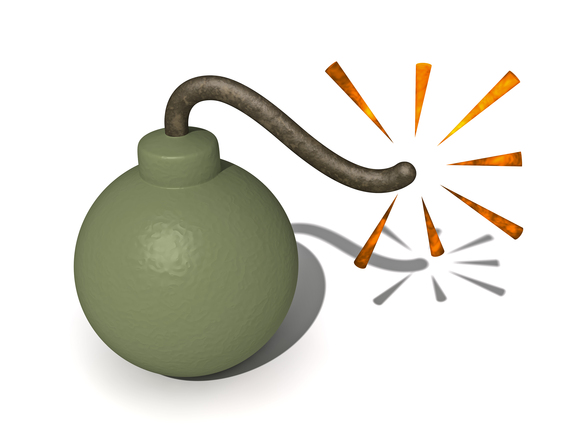For a California real property owner, liability to third parties for their injuries on the property requires that the injured person prove the owner had a duty of care to the injured party, there was a breach of the duty of care that was the proximate cause of the injuries, and the injured party suffered damages. Often most difficult test is the duty of care. The landowner must exercise ordinary care or skill in the management of their property. The idea is that the owner has control over the property and the ability to prevent the harm. When the owner is aware of (or should reasonably be aware of) a dangerous condition on the property, there are obligated to either fix it or warn people of the risk. I have written previously of the failure to warn of a dangerous attic stair, and how the real estate agent failed to warn a person who was injured. The California Supreme Court has established a list of factors in determining whether there is a duty of care:
(1) the foreseeability of harm;
(2) the degree of certainty that the plaintiff suffered injury;
(3) the closeness of connection between the plaintiff’s injury and the landowner’s conduct;
(4) the moral blame attached to the landowner’s conduct;
(5) the policy of preventing future harm;
(6) the burden on the landowner and the consequences to the community of imposing a duty on the landowner; and
(7) the availability, cost, and prevalence of insurance for the risk.
 In a recent decision, The test was not met when an owner was found not liable when the landscaper stepped on unstable explosives that happened to be in the yard.
In a recent decision, The test was not met when an owner was found not liable when the landscaper stepped on unstable explosives that happened to be in the yard.
In Mario GARCIA et al., v. Michele HOLT et al., Mario was a landscaper and Holt an owner of property. Holt rented the property on a month to month tenancy. Apparently the tenant had been making homemade explosives (the only kind to make at home) and stashing them in the yard. Mario and his employees had been maintaining the landscape for five years without noticing anything suspicious. He noticed immediately in 2010 when he walked over some unstable materials and they blew him up. Garcia sued the owners.
Garcia argued that the owners were negligent in allowing explosive materials to be kept on the premises. The owners claimed that they had neither actual nor constructive knowledge of the explosive materials on the premises, and further that there was no foreseeable risk requiring an inspection.
 Garcia countered that, once the lease became a month-to-month tenancy, the owners had a duty to exercise reasonable care to inspect the premises periodically. This is a gutsy argument because, even in a month-to- month tenancy, the tenant has possession and the lessor is neither entitled to, nor obligated to, make periodic inspections.
Garcia countered that, once the lease became a month-to-month tenancy, the owners had a duty to exercise reasonable care to inspect the premises periodically. This is a gutsy argument because, even in a month-to- month tenancy, the tenant has possession and the lessor is neither entitled to, nor obligated to, make periodic inspections.
 The court noted that “[W]here a landlord has relinquished control of property to a tenant, a ‘bright line’ rule has developed to moderate the landlord’s duty of care owed to a third party injured on the property as compared with the tenant who enjoys possession and control. ‘ “…his or her duty of care to third parties injured on the land is attenuated as compared with the tenant who enjoys possession and control. Thus, before liability may be thrust on a landlord for a third party’s injury due to a dangerous condition on the land, the plaintiff must show that the landlord had actual knowledge of the dangerous condition in question, plus the right and ability to cure the condition.”
The court noted that “[W]here a landlord has relinquished control of property to a tenant, a ‘bright line’ rule has developed to moderate the landlord’s duty of care owed to a third party injured on the property as compared with the tenant who enjoys possession and control. ‘ “…his or her duty of care to third parties injured on the land is attenuated as compared with the tenant who enjoys possession and control. Thus, before liability may be thrust on a landlord for a third party’s injury due to a dangerous condition on the land, the plaintiff must show that the landlord had actual knowledge of the dangerous condition in question, plus the right and ability to cure the condition.”
Mario’s argument about a duty to periodically inspect was all wrong. The landlord has an obligation to inspect only if the owner had some reason to know that there was a need for such an inspection. The owners had no knowledge of the tenant’s explosive propensities, nor any other reason to indicate that an inspection was necessary. The court applied the bright line rule and found that the owners were not liable because they had no actual knowledge of the dangerous condition on the property.
 California Real Estate Lawyers Blog
California Real Estate Lawyers Blog

